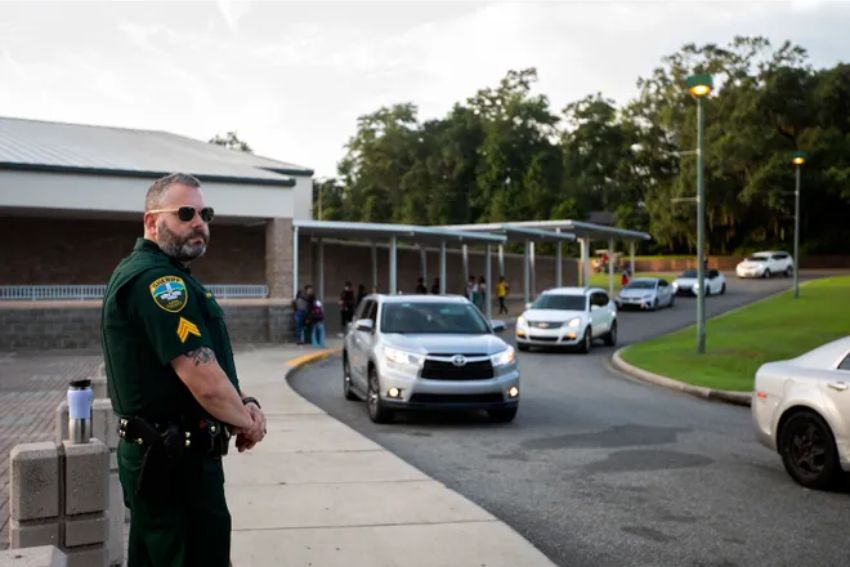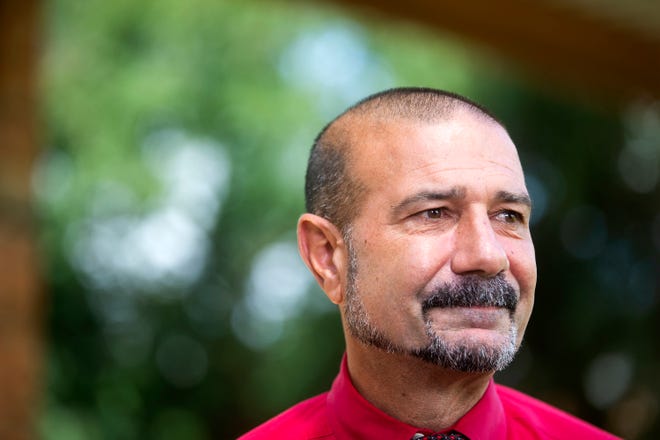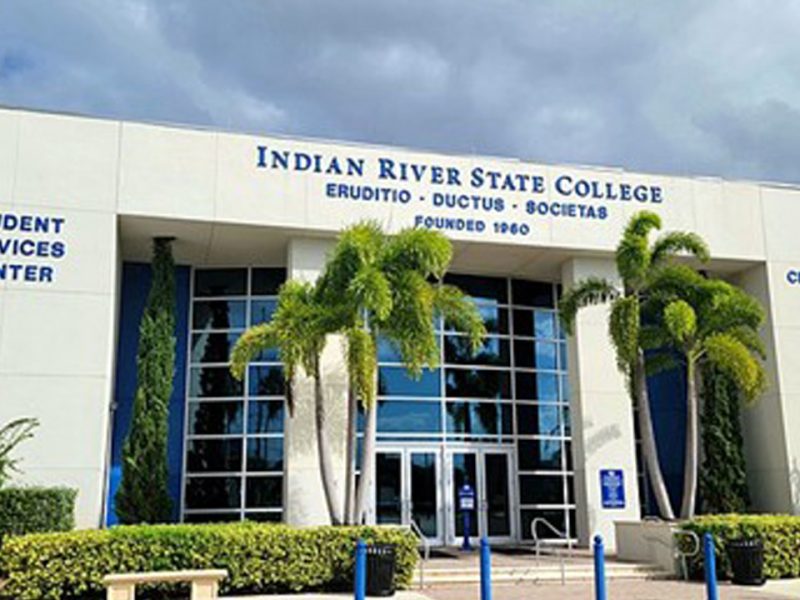
Superintendent: ‘All options are on the table’ to address issue of guns on campus
“It’s incumbent upon me and our other school leaders to find solutions so these kids are not feeling as though they need to make a poor decision and bring a weapon on campus,” said Rocky Hanna.
Tallahassee Democrat | By Ana Goñi-Lessan | October 3, 2022
Leon County Schools’ Jimmy Williams asked everyone at the school board meeting on Tuesday if they were members of the safety and security team.
Williams, the LCS chief of safety and security, raised his hand, but no one else did.
“So I’m gonna ask everybody in this room to raise your hand right now,” he said. “Everybody in here is tasked with safety and security of our schools. We’re asking because we can’t do it without your help.”
At the lectern and in a blue suit, Williams briefed the Leon County School Board about the latest streak of guns found on school campuses.
“This is a statewide and a nationwide epidemic,” he said. “It is not a Leon County problem. It is a nationwide issue that most all districts are facing.”
Across the country, the number of teens killed or injured by gun violence has increased since the pandemic began, according to the Gun Violence Archive. In 2019, 786 children ages 12 to 17 were killed. In 2020, the death toll rose to 1,087. And in 2021, it jumped again to 1,249.
Guns found on campus
In mid-September, a 17-year-old Leon High School student was arrested after a loaded handgun was found in his backpack. The week before, a Godby High School student was arrested after he was caught with a loaded 9mm handgun and marijuana in his backpack. And on Aug. 27, a Leon County school resource deputy arrested a 14-year-old who had a loaded gun in his jacket during a Friday night football game at Gene Cox Stadium.
Williams said the district speaks with the Florida Department of Education on a weekly basis and with local law enforcement daily.
City commissioners unanimously voted last week to hold a public workshop to further examine ways to spend $1 million to curb gun violence in the capital city.
Williams implored the community that if someone sees something, to say something.
“Statistically, we know 95% of the time that someone had knowledge that that person was going to commit an act, and they just didn’t want to get involved,” he said.
At the meeting, Superintendent Rocky Hanna said he and Williams have looked at other school districts in the state that were trying to use dogs for detecting weapons.
In Marion County, Hanna said the sheriff showed a dog that would alert if it detected a gun in a student’s backpack.
The Democrat sat down with Hanna and asked him about guns on campus and what actions the school district is taking to keep students safe.

Q: Last year, there were at least 11 incidents of a student bringing some kind of weapon to campus in the 2021-2022 school year, and student said they needed the weapon for protection. Are this year’s incidents the same?
A: “We have zero tolerance for kids bringing weapons on our campuses. But interviewing these students and asking them, ‘Why did you bring a weapon to school? Do you not feel safe?’ and 100% of the time they said it has nothing to do with not feeling safe at school. Our students feel safe at school. It’s in the neighborhoods, and it’s coming and going from home to school, that they’re most concerned about.
That’s why it’s incumbent upon me and our other school leaders to find solutions so these kids are not feeling as though they need to make a poor decision and bring a weapon on campus, even if it’s to provide them protection off site.”
Q: If a student is arrested for bringing a weapon on campus, what happens next?
A: “One of the principals asked if we had the ability to expel a student permanently from school or for multiple years. You’re caught in a really tough situation as a superintendent of schools or as a high school principal because you want these students to be punished, and you want them to have serious consequences for their actions. But you have to remember these are still just 16- and 17-year-olds, and without an education, there’s no doubt, 100%, they’re going to end up in prison. They’re going to only escalate their poor decisions. So what do we do? Where’s the balance between punishing someone for a bad choice and for bringing a weapon on campus, but not crushing their future? Where is that sweet spot? That’s really what we’re searching for.”
Q: Have you thought of expanding security on campus?
A: “The best defense is a good offense. Our goal is to develop healthy relationships with our students so that they’ll feel comfortable coming forward and saying something before it happens. If they know that a student on campus has something in their possession that they should not have, they will make us aware of that and we can take action. In these cases, that’s exactly what’s happened.
We are also looking at a program they have at Chiles High School. It’s an anonymous reporting app that goes directly to administrators, so it kind of speeds up the time that we can then respond.
A lot of folks think, ‘Why don’t we just treat our schools like airports?’ Well, because they’re not airports. When you go into an airport, once you’re searched, you go through the metal detectors and you don’t come out of the airport until you get your suitcase and you go home. Students on the other hand, especially at high schools, they’re coming and going from doctor’s appointments, they’re changing classes outside and going from one building to the other. Logistically metal detectors present all kinds of issues and all kinds of problems. It’s hard to control.
I will say that all options are on the table. We’ve discussed metal detectors, we’ve discussed no backpacks, we’ve discussed clear backpacks, we’ve discussed lots of things. It’s an issue that will continue to weigh heavily on my mind and the minds of our principals until we find a way to stress to our students the importance of not bringing weapons on our campuses.”





